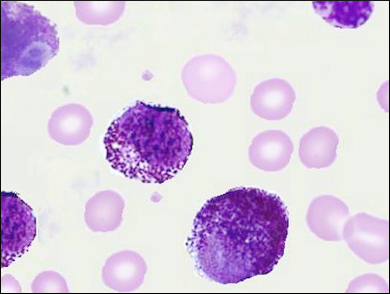When applying hematopoietic stem cell transplantation (HSCT) as therapy to treat different forms of leukemia, one of the major risks is the occurrence of acute graft-versus-host-disease (aGvHD). This complication involves the immune cells in the transplant attacking the host’s cells. At the moment, the only treatment option is to use conventional immunosuppressive drugs (e.g. corticosteroids) to achieve aGvHD suppression, a strategy that in itself also presents pitfalls like cancer relapses and higher infection rates.
Felix Schmidt and colleagues, Fraunhofer Institute for Cell Therapy and Immunology (IZI), Leipzig, Germany, used a mouse model in which P815GFP tumor cells, bone marrow cells, and splenocytes are transplanted into leukemic mice. Flow cytometry assays were used to assess the immunological status and to detect tumor cells in the animals. Additionally, a therapy with anti-human CD4 antibodies was implemented. The study showed that the antibodies prevented aGvHD while the desired graft-versus-leukemia (GvL) effect could be preserved. This paves the road to a clinical trial to avoid adverse reactions following bone marrow transplants in human beings.
- Flow cytometric analysis of the graft-versus-Leukemia-Effect After Hematopoietic Stem Cell Transplantation in Mice,
Felix Schmidt, Nadja Hilger, Christoper Oelkrug, Ellen Svanidze, Peter Ruschpler, Wolfram Eichler, Andreas Boldt, Frank Emmrich, Stephan Fricke,
Cytometry A 2015, 87, 334–345.
DOI: 10.1002/cyto.a.22619




